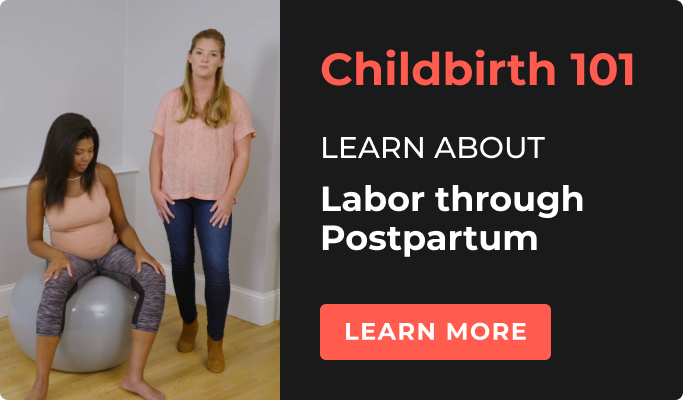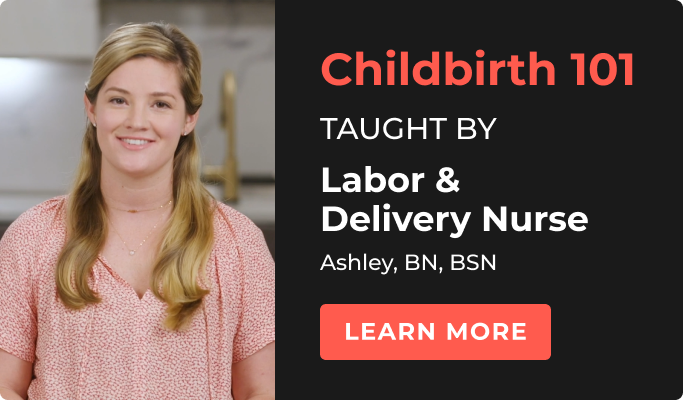By Alena Bowen
2020 is officially behind us — hooray! — but unfortunately, COVID-19 is not. If you’re currently expecting, it’s important to understand how your provider and birth place will keep you and baby safe during your pregnancy, labor, and birth.
Ask these 11 questions to get a clear understanding of how your provider’s and birth place’s particular protocols and policies will impact your birth experience.
1. Can I bring a partner or companion to my appointments?
Some providers are asking parents-to-be to attend their prenatal appointments alone to reduce infection risk in waiting rooms. Appointment schedules may also be altered to meet providers’ current dynamic needs. Talk to your provider about current expectations around appointment scheduling.
2. Do you offer virtual prenatal appointments?
Your prenatal appointments may also be available virtually. Check with your provider to see if telehealth is an option at their facility and for your pregnancy.
3. Are you still offering prenatal classes and hospital tours?
Like many other aspects of COVID-19 life, most in-person classes and tours have gone virtual. Check your birth place’s website for listings and updates, or browse our library of expert-led online courses for additional options.
4. What protocols do you have in place to ensure my safety?
Entering a birth place during a pandemic to have a baby is stressful, to say the least. Ask your birth place what specific safety measures they have taken to protect pregnant patients, such as a mask policy, designated entrance, limits to the number of staff who enter your room and/or how often they enter, or a limited visitor policy. Speaking of which...
5. What is your current visitor policy?
Many birth places are currently limiting visitors to the nursery, patient rooms, and waiting areas to protect patients and mitigate the spread of COVID-19. Ask your birth place for their particular policies to understand who can visit, when, and with what precautions.
6. Will I be tested for COVID-19 when I arrive at the birth place?
Many birth places currently test all parents arriving for labor and birth for COVID-19. Why? According to Mass General, “Some patients who have no symptoms may be identified as COVID-19 positive, and this information allows us to take the best care of all the parents and babies on the unit.”
7. Can my partner or support person be present during birth?
At most birth places, the current answer is yes — as long as that person is free from symptoms and wearing a mask throughout the visit. This is a big one, though, that varies significantly, so be sure to ask your particular birth place for their latest policy.
8. What if I have a doula?
Some birth places and providers count a doula as your one support person and do not allow visitors to switch in and out. Again, however, circumstances change often, so definitely check close to your due date to understand who can join you in your room.
9. What happens if I am positive for COVID-19 and I go into labor?
It’s important to understand the birth place’s protocols should you be infected with COVID-19 during birth. At most birth places, if you test positive for COVID-19, you will be isolated and all medical professionals will wear protective garb.
In the early days of the pandemic, the CDC recommended that newborns be isolated from infected birthing parents for 14 days after birth. Thankfully, that’s no longer the case. The American Academy of Pediatrics now says that rooming with baby is a reasonable choice as long as precautions are taken and the birthing parent is not too ill.
10. Can I breastfeed if I am COVID-19 positive?
Currently, experts recommend that if a breastfeeding or pumping parent is diagnosed with COVID-19, they can continue to breastfeed and/or express milk for baby. Whether and how to start or continue breastfeeding should be determined by the parent in coordination with their family and healthcare providers.
WHO recommends that parents with suspected or confirmed COVID-19 should be encouraged to initiate or continue to breastfeed. Parents should be counselled that the benefits of breastfeeding substantially outweigh the potential risks for transmission.
Breast milk is the best source of nutrition for most infants. We do not know whether parents with COVID-19 can transmit the virus via breast milk, but the limited data available suggest this is not likely.
A parent with confirmed COVID-19 or who is a symptomatic should take all possible precautions to avoid spreading the virus to their infant. This includes washing hands before touching baby, and wearing a face mask, if possible, while nursing. If pumping with either a manual or electric breast pump, ensure you wash hands before touching any pump or bottle parts and follow recommendations for proper pump cleaning after each use. If possible, consider having someone else, who is not sick, feed the expressed breast milk to the infant.
Don’t forget to ask about lactation support as well. With current limits on staff interactions, lactation consultants may not be available. (Learn more about online lactation support from Tinyhood.)
11. When can I leave the birth place?
Some birth places now allow healthy birthing parents and babies to go home sooner than was previously recommended to protect them from exposure. Ask your birth place if 24-hour checkout is an option assuming no complications during birth.
We salute every parent who is or was pregnant during these challenging times, and we know how hard providers and birth places are working to keep them safe. Ask these questions, and any others that you may have, to gain greater understanding and peace of mind about your labor and birth experience.
About the Author
Alena Bowen writes about technology for work and family for fun. She lives in Denver, CO with three young children, a middle-aged husband, and an old cat. You can find her on Medium.




